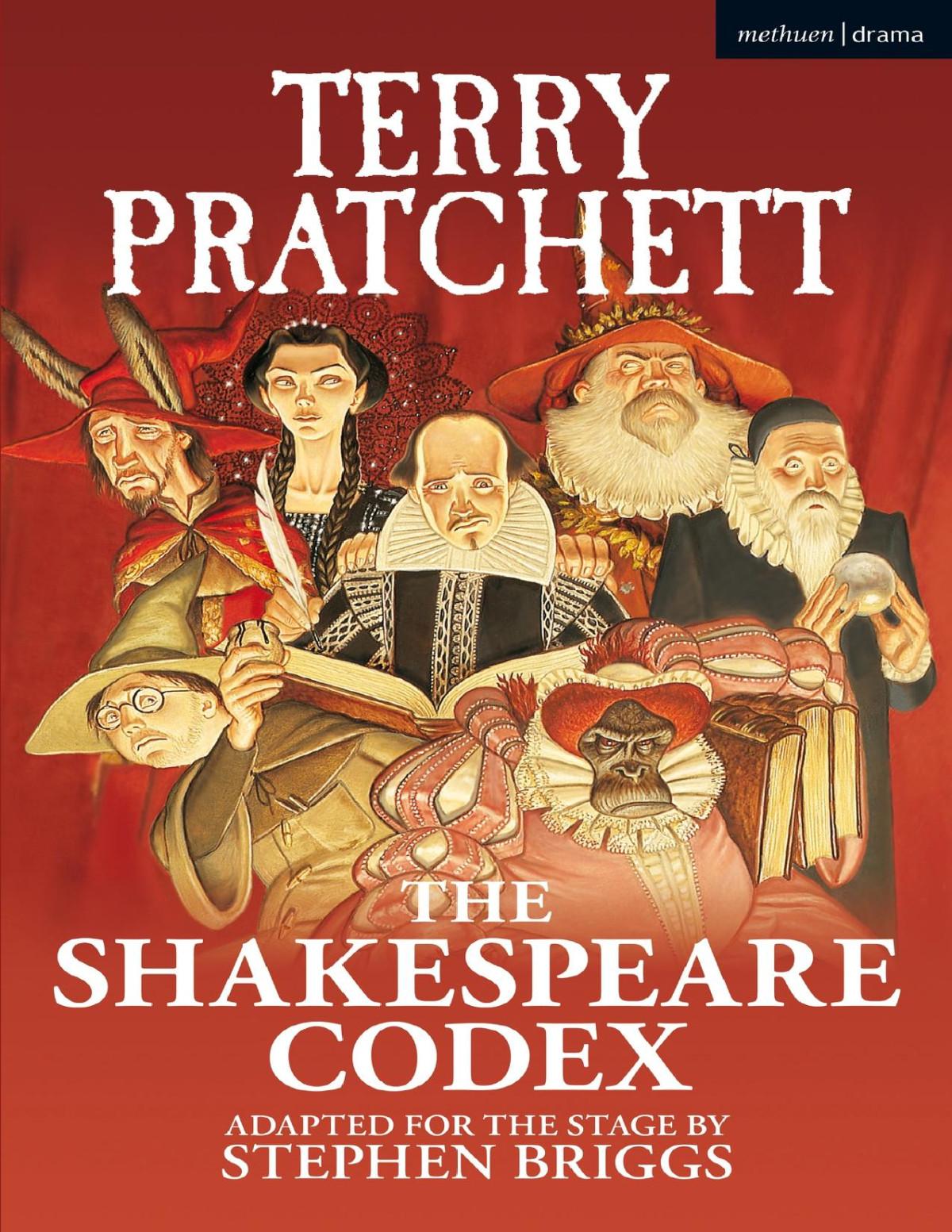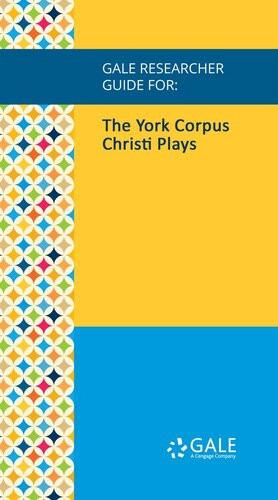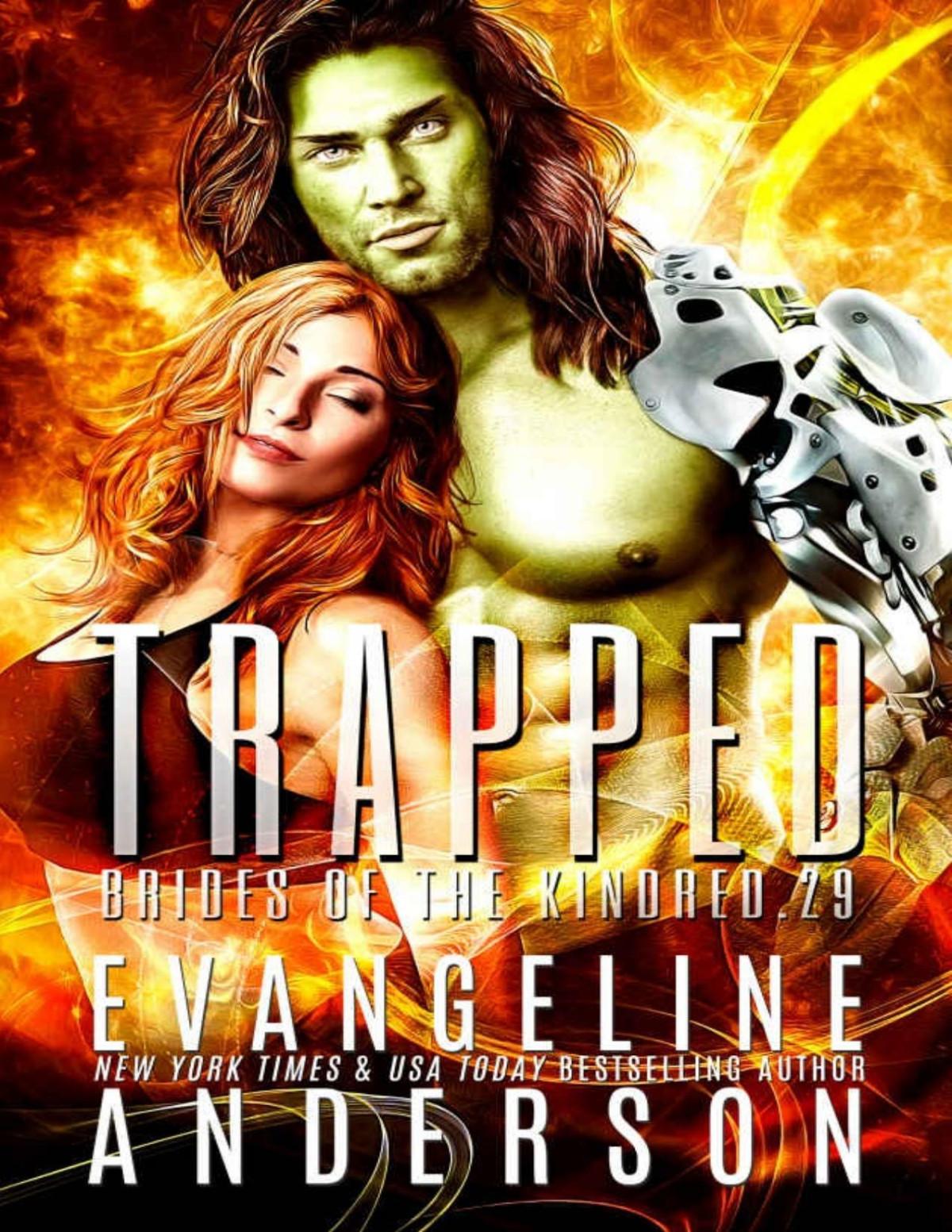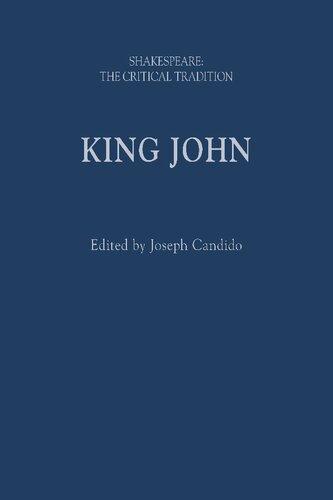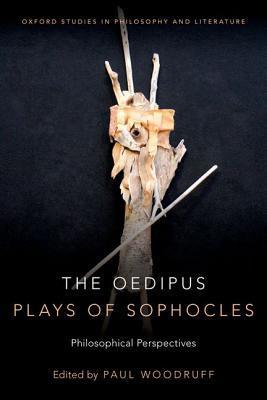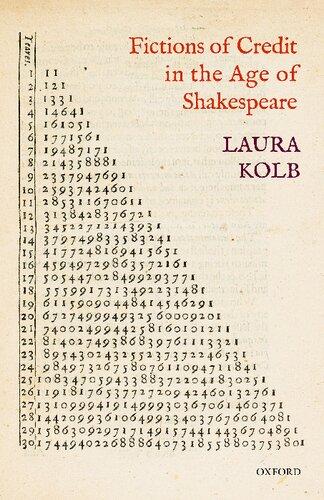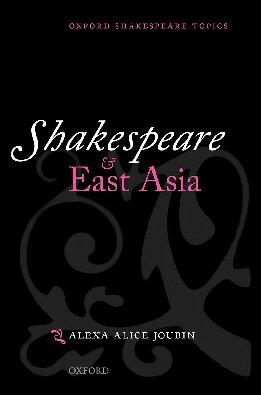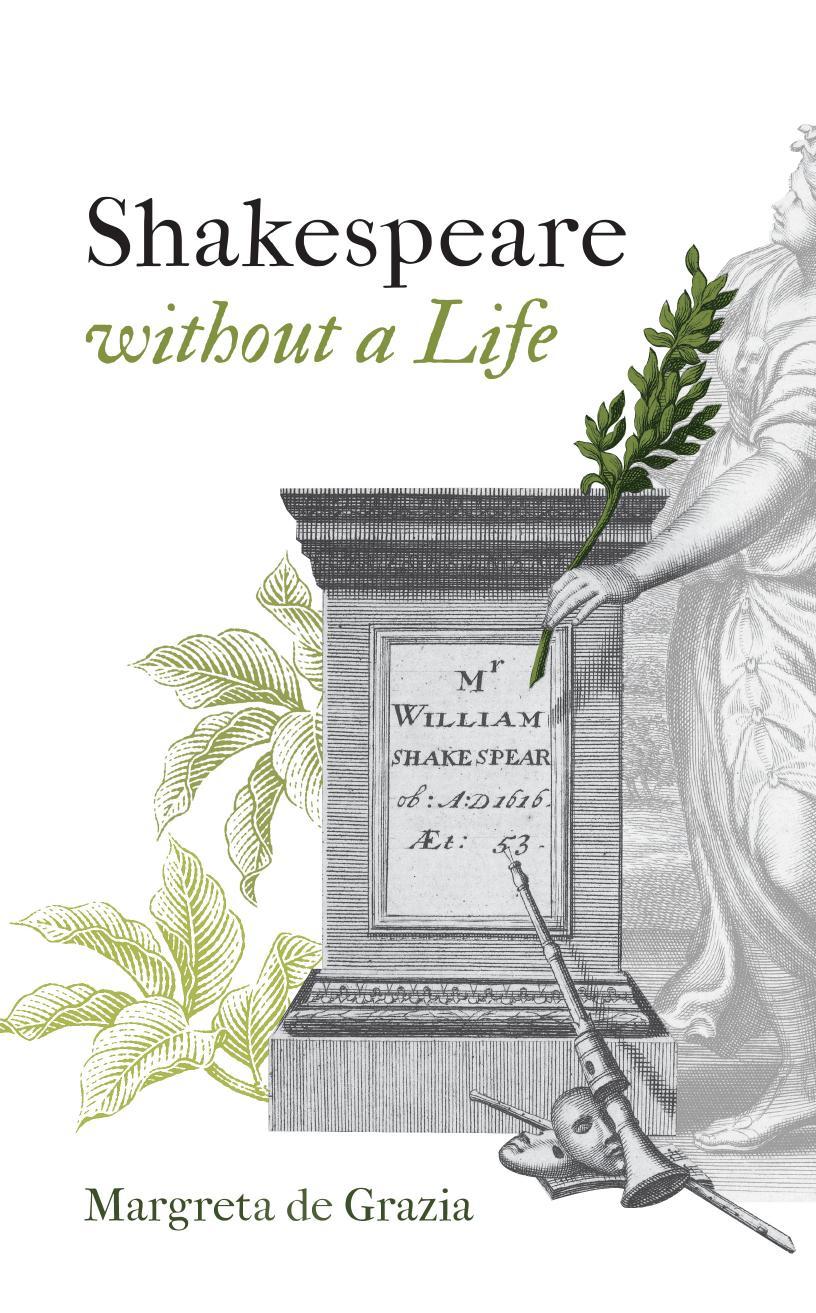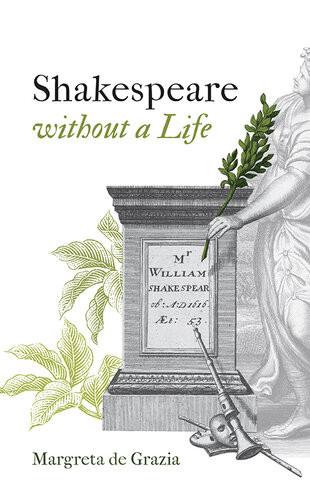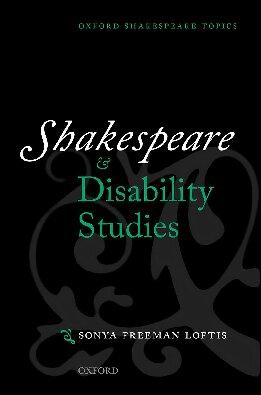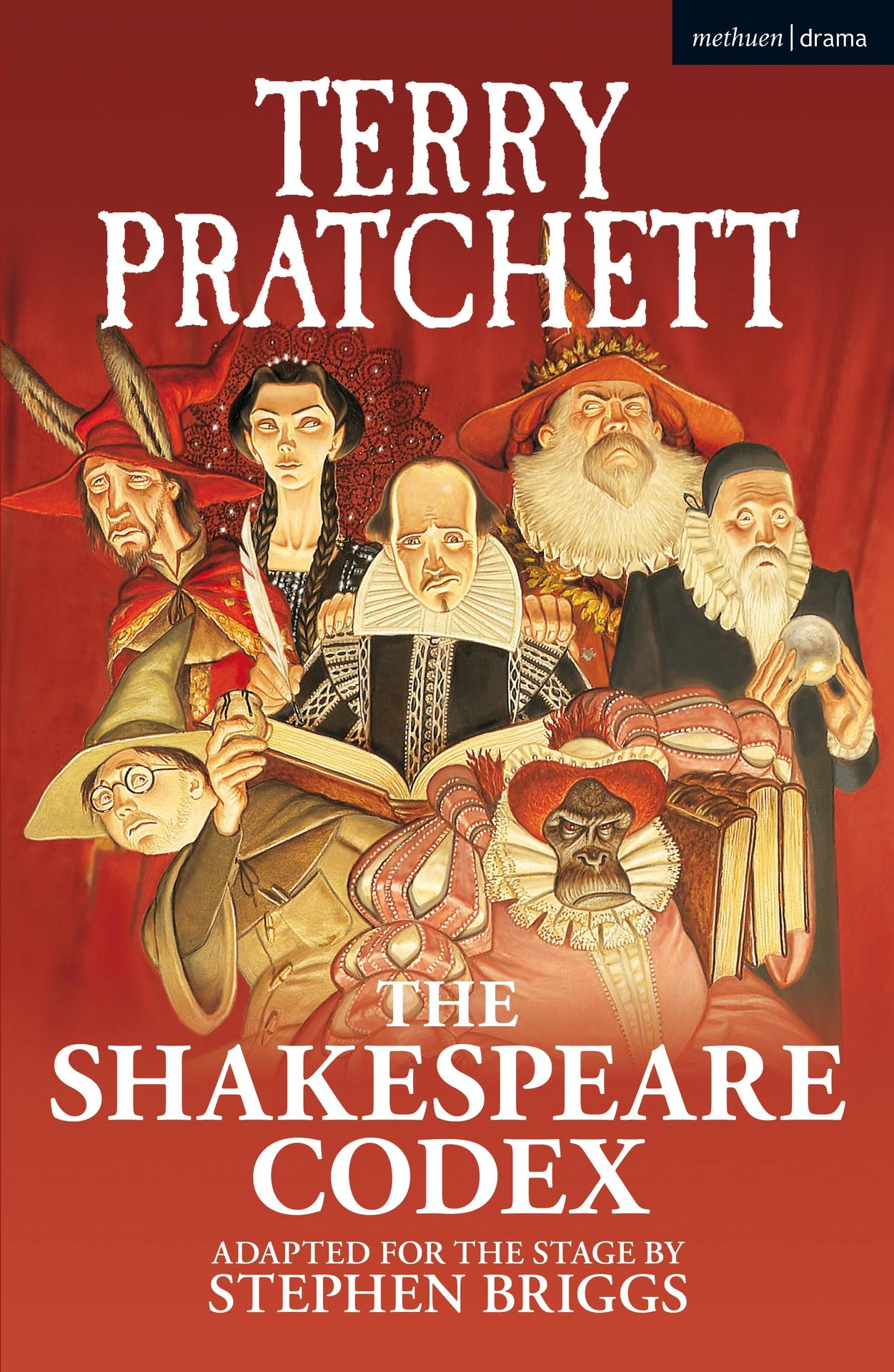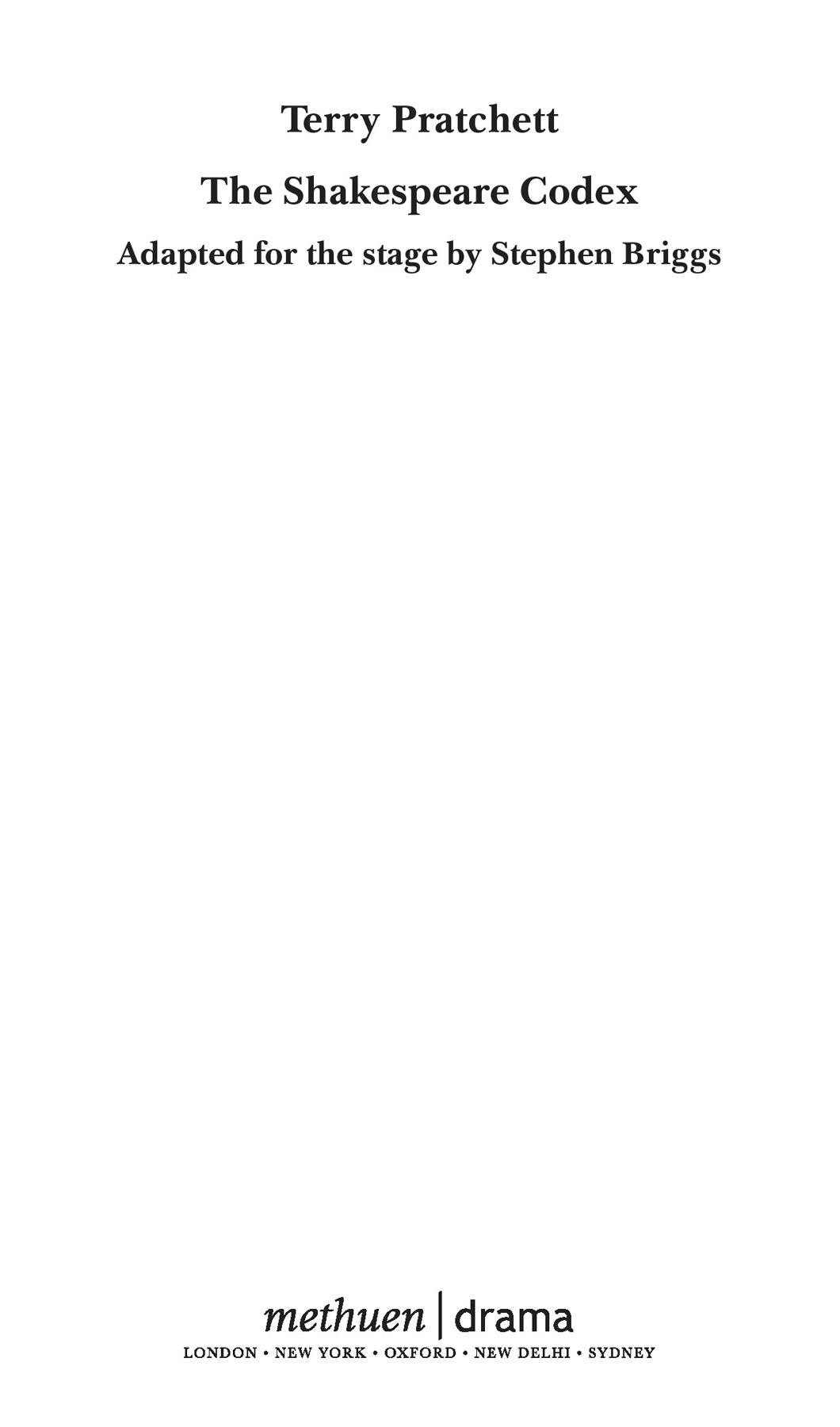The Shakespeare Codex (Modern Plays) Terry Pratchett
Visit to download the full and correct content document: https://ebookmass.com/product/the-shakespeare-codex-modern-plays-terry-pratchett/
More products digital (pdf, epub, mobi) instant download maybe you interests ...
The York Corpus Christi Plays Margaret Rogerson
https://ebookmass.com/product/the-york-corpus-christi-playsmargaret-rogerson/
Trapped: Brides of the Kindred Book 29 Faith Anderson
https://ebookmass.com/product/trapped-brides-of-the-kindredbook-29-faith-anderson/
King John: Shakespeare: The Critical Tradition Joseph Candido (Editor)
https://ebookmass.com/product/king-john-shakespeare-the-criticaltradition-joseph-candido-editor/
The Oedipus Plays of Sophocles: Philosophical Perspectives Paul Woodruff
https://ebookmass.com/product/the-oedipus-plays-of-sophoclesphilosophical-perspectives-paul-woodruff/
Fictions of Credit in the Age of Shakespeare Laura Kolb
https://ebookmass.com/product/fictions-of-credit-in-the-age-ofshakespeare-laura-kolb/
Shakespeare and East Asia Alexa Alice Joubin
https://ebookmass.com/product/shakespeare-and-east-asia-alexaalice-joubin/
Shakespeare without a Life Margreta De Grazia
https://ebookmass.com/product/shakespeare-without-a-lifemargreta-de-grazia-2/
Shakespeare Without a Life Margreta De Grazia
https://ebookmass.com/product/shakespeare-without-a-lifemargreta-de-grazia/
Shakespeare and Disability Studies Sonya Freeman Loftis
https://ebookmass.com/product/shakespeare-and-disability-studiessonya-freeman-loftis/
INTRODUCTION
ALL THE DISCWORLD’S A STAGE
The first people ever to dramatise the Discworld, in any form, were the Studio Theatre Club in Abingdon, Oxon. That was in 1991, with Wyrd Sisters.
We had already staged our own adaptations of other works: Monty Python’s Life of Brian and Holy Grail and Tom Sharpe’s Porterhouse Blue and Blott on the Landscape. We were looking for something new when someone said, ‘Try Terry Pratchett – you’ll like him’. So I ventured into the previously uncharted territory of the ‘Fantasy’ section of the local bookstore (‘Here Be Dragons’). I read a Terry Pratchett book; I liked it. I read all of them. I wrote to Terry and asked if we could stage Wyrd Sisters. He said yes. Wyrd Sisters sold out. So did Mort the year after.
So did Guards! Guards!, Men at Arms, Maskerade, Jingo, Carpe Jugulum, The Fifth Elephant, The Truth, Night Watch, Interesting Times, Monstrous Regiment and all the others in the years after that. In fact, ‘sold out’ is too modest a word for some of the earlier ones. ‘Oversold very quickly so that by the time the local newspaper mentioned it was on we’d had to close the booking office’ is nearer the mark.
My casts were all happy enough to read whichever book we were staging, and to read others in the canon, too. For the later books in the series, we were often staging the play within a few weeks of the book’s publication. I was working from early drafts and the cast was able to read the bound proof.
The books stand on their own, but some knowledge of the wider Discworld ethos is essential when adapting the stories, and can also help directors to find out where it’s all coming from, and help the actors with their characterisations.
The Discworld novels have been getting longer, more complex and darker as the years have passed and it is an increasing problem to try to put over the main plot while still meeting the overriding target for amdram – getting into the pub before closing. The important thing is to decide what is the
basic plot: anything which doesn’t contribute to that is liable to be dropped in order to keep the play flowing. Favourite scenes, even favourite characters, have on occasions had to be dumped. These are hard decisions but the book has to work as a play. You can’t get 400 pages of novel into two/two-and-a-half hours on stage without sacrifices. Each play also offers a challenge to Directors in working out who can double for whom in order to stage them with a smaller cast. You’ll see from the cast list which follows this Introduction how we covered all the roles.
Although the majority of our audiences are ‘fans’, I’ve tried to remember when writing the plays that not all the audience will be steeped in Discworld lore. Some of them may just be regular theatre-goers who’d never read a fantasy novel in their whole lives – humorous fantasy may not be everyone’s ‘thing’.
Terry Pratchett: The Shakespeare Codex is based on one of Terry’s less well-known stories – the sub-plot which shares the pages of The Science of Discworld II: the Globe (plus some bits of other books, such as Lords and Ladies). As such, it may be better suited to companies with a core of Discworld regulars in their audiences but, then again, the Shakespearebased plot, and usage of his plots and characters should make it accessible to ‘normal’ theatre-goers. I wouldn’t want ‘newbies’ to feel they were watching something that had been typed on an Enigma machine.
Terry’s books are episodic and have a sort of ‘cinematic’ construction; I have retained this format in The Shakespeare Codex and used different stage areas and levels with brisk lighting changes to keep the action flowing. Set changes slow down the action, even when they’re really slick. A thirty-second blackout between each scene, accompanied by rustling, crashing and muffled swearing from your stage crew, means you’re in danger of losing the audience. Even ten-second changes, if repeated often enough, will lead to loss of interest.
I’ve been to see many productions of the plays and the best have been those that have used bare stages or composite sets – leaving the majority of the ‘scene changing’ to the lighting technician. The golden rule is: if you can do it without scene shifting, do it without scene shifting. It’s a concept that has served radio drama very well (everyone knows that radio has the best scenery). And Shakespeare managed very well without it, too.
The plays do, however, call for some unusual props. Over the years, many of these have been made by my casts and crew: large hourglasses for Death’s house, shadow puppets, archaic rifles, dragon-scorched books. Other, more specialised props were put ‘out to contract’: Death’s sword and scythe, an orang-utan, Detritus’ head and hands, a Death of Rats, a Greebo, Scraps the dog and two swamp dragons (one an elaborate hand puppet and one with a fire-proof compartment in its bottom for a flight scene).
Nowadays, I can’t imagine how I’d cope without eBay.
Since the Studio Theatre Club started the trend in 1991, Terry and I have had many enquiries about staging the books – from as far afield as Finland, Zimbabwe, Indonesia, Australia, Bermuda and the Czech Republic (as well as Sheffield, Aberdeen, Exeter and the Isle of Man). I even licensed a production of Wyrd Sisters in Antarctica! Royalties from the five plays administered by us have raised over £90,000 so far for the Orangutan Foundation.
So how did our productions actually go? We enjoyed them. Our audiences seemed to enjoy them (after all, some of them were prepared, year after year, to travel to Abingdon in Oxfordshire from Germany, the Netherlands, Taunton, Edinburgh and . . . well, Oxford). Terry seemed to have enjoyed them, too. He said that many of our members looked as though they had been recruited straight off the streets of Ankh-Morpork. He said that several of them were born to play the ‘rude mechanicals’ in Vitoller’s troupe in Wyrd Sisters. He once said that, in his mind’s eye, the famous AnkhMorpork City Watch are the players of the Studio Theatre Club.
I’m sure these were meant to be compliments.
THE SHAKESPEARE CODEX
I had wanted to do some sort of adaptation of the Shakespeare plot in The Science of Discworld II for some time, but other Pratchett books kept beating that project to the punch. Terry and I had discussed how such a brief plot could work and then, in 2016, the time was finally right. I’m grateful to Rob Wilkins and Rhianna Pratchett for their green light for this one. We knew from long experience that the Discworld plays were a winner . . . though we’d also learned that the flourishing trade in other groups staging
the plays meant that, although they still play to full houses, we couldn’t afford to take those full houses for granted.
I wanted to ensure that, even though I had been able to add extra female characters into the mix, that as much as possible of the Discworld characters’ dialogue was Terry’s own words. I used snippets from Lords and Ladies, Wyrd Sisters and Maskerade to help to flesh out their scenes. I also liked the artifice of using Shakespeare’s own words for some of the ‘normal’ dialogue, and also ‘hiding’ quotations from his plays in the Discworld scenes.
When I wrote it, I wasn’t sure what I was going to call it – Not the Science of Discworld II, All’s the Disc’s a Globe, The Rude Mechanicals, A Midsummer Dream’s Nightmare. In the end, I decided to gently pay homage to the Doctor Who plot which was very similar to Terry’s – the one where the tenth Doctor has to stop Shakespeare completing Love’s Labour’s Won to stop an evil alien invasion – ‘The Shakespeare Code’.
A bonus for me was that Abingdon’s medieval Unicorn Theatre, with its Globe-esque stage, was a part of the package; it has its shortcomings, but its ambience contributed much to the original success of the shows, and would be a huge bonus in a play set in and around Shakespearean England.
This dramatisation was written with the Unicorn Theatre’s restrictions, and the number of players I expected to have available, in mind. Really complicated scenic effects were virtually impossible. Basically, we had a bare stage with an on-stage balcony at the back of the stage with a small curtained area beneath it. Anyone thinking of staging a Discworld play can be as imaginative as they like – call upon the might of Industrial Light & Magic, if it’s within their budget. But The Shakespeare Codex can be staged with only a relatively modest outlay on special effects. Bigger groups, with teams of experts on hand, can let their imaginations run wild! In short, though, our experience, and that of other groups, is that it pays to work hard on getting the costumes and lighting right, and to keep the scenery to little more than, perhaps, a few changes of level enhanced by lighting effects and carefully chosen background music. There’s room for all sorts of ideas here. The Discworld, as it says in the books, is your mollusc.
Terry Pratchett and me
This was our first Pratchett play since Terry left us, and the first of his shows he wasn’t able to come and see – nor to comment on afterwards in the pub, over a large brandy.
I think he would have approved of this riff on that plot, and the opportunity I’ve taken (with permission from Rob Wilkins and Rhianna Pratchett) to include cameos from a range of Discworld’s ‘stars’ . . . an homage to the character cameos Terry wove into the final Discworld novel, The Shepherd’s Crown. I’ve also (as he did in Dodger) tinkered a little with the historical timeline to suit the action. Oh, and taken a few Treehouse of Horror liberties with some characters’ lifelines!
Terry and I became friends and (as you may know) we worked together on lots of projects. It was awful to learn of his ‘embuggerance’ – posterior cortical atrophy, a form of Alzheimer’s – and to know that it would, inevitably, steal him from us. It was a hammer blow when he died.
But Terry’s books live on. His plots, characters, humanity and humour are there to delight generations to come.
It’s been fun so far, and there are lots of his stories I haven’t tackled yet!
Characterisation
Within the constraints of what is known and vital about each character, there is still room for flexibility of interpretation. With the main roles, though, you have to recognise that your audiences will expect them to look as much like the book descriptions as possible. Most drama clubs don’t have a vast range from which to choose, though, and it’s the acting that’s more important than the look of the player when it comes down to it.
Costumes
The City Watch ‘style’ is English Civil War (though you won’t need that for this play), and Angua tends to look slightly ‘ancient Roman’ with tabbed kilt, etc. Vetinari wears a long, ecclesiastical-looking black robe and a black skull cap. The rest of the city now tends towards Dickensian, with a side order of medieval. The Librarian (for those new to Discworld) is an
orangutan. Luckily, orangutan costumes are now more readily available on the internet. For discretion, he also usually wears a robe – we used a red university doctorate robe.
Scenery
Virtually none. We had a couple of stools, and an old-looking table for the inn and for Dr Dee’s study. Apart from that, a virtually bare stage, so we could keep the action moving.
Semaphore?
Fans of Terry’s books will notice that I’ve referred to Discworld’s ‘clacks’ system as ‘semaphore’ in this play. The clacks system is well set up in the novels by its creation in Going Postal. Here. it’s just a passing reference which would need explaining to audiences unfamiliar with the books. That would just slow down the action and distract from the gags based around the cost of messaging and Granny’s one-word reply. If you feel your audiences would prefer ‘clacks’ to ‘semaphore’, then feel free to swap.
Oh, and a word on pronunciation . . .
Having seen many of the plays staged, pronunciation of the names seems sometimes to be a stumbling block. Here are some pointers:
AnkhMorpork Ankh, as in ‘bank’, Morpork as in ‘more pork’, with the stress in the city’s name on the second syllable – AnkhMorpork.
Vetinari Long ‘a’ and stress the third syllable – Vetinah-ri.
Rincewind The ‘i’s in ‘Rincewind’ are both short, as in ‘dish’.
Angua Hard ‘g’. An-Gwa, or An-Gewah.
Gytha Geetha, with a soft ‘th’.
Esme Ez-mee. Not Ezmay.
Magrat As it looks – Mag.Rat. stress on the first syllable. Not M’grat, not Margret.
Thinking of staging it . . .?
Application for professional performance, etc., should be made before rehearsal to legal@narrativia.com and for amateur performance to Bloomsbury Publishing Plc at 50 Bedford Square, London, WC1B 3DP, UK (contact@bloomsbury.com). No performance may be given unless a licence has been obtained.
Please also note that we have an obligation to ensure that productions remain true to this approved text. This means that we are now very unlikely to agree to text changes unless there are genuinely compelling reasons (such as, for example, toning down language for a junior school production).
Stephen Briggs January 2021 www.stephenbriggs.com Twitter @StephenPBriggs
Terry Pratchett: The Shakespeare Codex, adapted by Stephen Briggs, was first presented by the Studio Theatre Club at the Unicorn Theatre, Abingdon, on Wednesday 6 April 2016, with the following cast and crew:
On Discworld
Mustrum Ridcully
Ponder Stibbons
Rincewind
Librarian
Havelock, Lord Vetinari
Drumknott
Captain Angua
Granny Weatherwax
Nanny Ogg
Magrat Garlick
Shawn Ogg
Young Esme Weatherwax
Elf Queen
Hex
On Roundworld
Elizabeth I, Queen of England
Bess Talbot, Countess of Shrewsbury
Edward de Vere, Earl of Oxford
William Shakespeare
Christopher Marlowe
Richard Burbage
Will Kemp
Matt Kirk
Brian Mackenwells
Dan Booth
Matthew Fifield
Stephen Briggs
Francesca Richards
Anna Griffiths
Val Shelley
Erin Burns
Jessica Maguire
John Kirchhoff
Francesca Richards
Natasha Warner
Suraj Patel
Anna Sturrock
Kat Steiner
Ben Winters
Rory Morrison
Charlie Vicary
Tom Fenton
Mike MacDonald
Thomas Kent Anna Sturrock
Capulet Matt Fifield
Montague
Kalil Copley
Prince Charlie Vicary
Hippolyta
Kalil Copley
Dr Dee John Kirchhoff
Lost Hope
Lankin Jamie Crowther
Greysteel
Simon Wilson
Vinkala Jon Shepherd
Speck (non-speaking) Francesca Richards
On Both Worlds
Narrator
Second Narrator
Mike MacDonald
Jon Shepherd
Traveller (cut from this text) Kalil Copley
Companion (cut from this text) Jessica Maguire
Director Stephen Briggs
Stage Manager
Lighting
Elena Wright
Jon Viner, Nigel Tait
Sound Daniel Booth
Terry Pratchett
The Shakespeare Codex
An Adventure in Disc and Time
Adapted for the stage by Stephen Briggs
Characters
On Discworld
Mustrum Ridcully, Archchancellor of Unseen University
Ponder Stibbons, a clever wizard
Rincewind, an inept wizard
Librarian, formerly Dr Horace Worblehat but now an orangutan
Havelock, Lord Vetinari, Patrician of Ankh-Morpork
Drumknott, Patrician’s Secretary
Captain Angua, a Watch Officer
Granny Weatherwax, a powerful witch
Nanny Ogg, a lively witch
Magrat Garlick, a herbal witch
Shawn Ogg, a Lancre official
Esme Weatherwax, a soon-to-be witch
Elf Queen, a malicious ruler
Hex, a magical thinking device
On Roundworld
Elizabeth I, Queen of England
Bess Talbot, Countess of Shrewsbury
Edward de Vere, Earl of Oxford
William Shakespeare, a playwright
Christopher Marlowe, a playwright
Richard Burbage, an actor-manager
Will Kemp, an actor
Thomas Kent, a visiting actor
Capulet, in Romeo and Juliet
Montague, in Romeo and Juliet
Prince, in Romeo and Juliet
Hippolyta, in A Midsummer Night’s Dream
Dr Dee, a scientific thinker
Lost Hope
Lankin, an elf
Greysteel, an elf
Vinkala, an elf
On Both Worlds
Narrator, a narrator
Second Narrator, another narrator
Act One Act Two
Act One
Scene One
The Globe Theatre, London. Around 1595. Elizabethan music. As the house lights go down . . . magical lighting effect and sound . . . in the dark the audience hears . . .
Juliet (off) What’s here? a cup, closed in my true love’s hand?
Poison, I see, hath been his timeless end . . .
First Watchman (off) Lead, boy: which way?
Juliet (off) Yea, noise? then I’ll be brief. O happy dagger! (Noise of dagger unsheathing.) This is thy sheath; (noise of stabbing) there rust, and let me die . . .
Intro music. Lights up. Enter Prince, Capulet and Montague . . . above, a couple of Elves watch. Throughout the play, the extracts from Shakespeare’s plays are played straight. Not hammy
Prince This letter doth make good the friar’s words, Their course of love, the tidings of her death:
And here he writes that he did buy a poison of a poor ’pothecary, and therewithal came to this vault to die, and lie with Juliet.
Where be these enemies? Capulet! Montague! See, what a scourge is laid upon your hate,
Capulet O brother Montague, give me thy hand: This is my daughter’s jointure, for no more can I demand.
Montague But I can give thee more: For I will raise her statue in pure gold; that while Verona by that name is known, there shall no figure at such rate be set as that of true and faithful Juliet.
Capulet As rich shall Romeo’s by his lady’s lie; poor sacrifices of our enmity!
Prince A peace this morning with it brings; The sun, for sorrow, will not show his head:
Go hence, to talk of these sad things; Some shall be pardon’d, and some punishèd:
For never was a story of more woe – than this of Juliet and her Romeo.
Sound of audience applause and cheers. Cast bow. William Shakespeare comes on stage and bows, too. As he walks off, the Prince says to him:
Prince So – Will – we’re doing Richard the Second next right? – but what’s after that? Something a bit lighter, please? A comedy . . .?
William Shakespeare As it happens, Richard, I do have a nice, summery piece in my head . . .
They exit. Queen Elizabeth I (cloaked) and two companions enter, carrying programmes for Romeo and Juliet. Edward de Vere, Earl of Oxford is looking extremely unimpressed.
Bess, Countess of Shrewsbury (dabbing her eyes) That was so sad . . . I do prefer a laugh, though this tale was very touching, madam . . .
Queen Elizabeth (still cloaked) Oh we also, Bess, we also. Mind you – as you say, this had its moments . . .
She quotes.
‘Do you bite your thumb at us, sir?’
Bess, Countess of Shrewsbury (joining in and acting it out) ‘I do bite my thumb, sir.’
Queen Elizabeth ‘Do you bite your thumb at us, sir?’
Bess, Countess of Shrewsbury (laughing) ‘No, sir, I do not bite my thumb at you, sir, but I bite my thumb, sir.’
They laugh and give a little contented sigh. Bess turns to Edward, Earl of Oxford.
Bess, Countess of Shrewsbury How many times have we seen it now, Edward?
Edward, Earl of Oxford (a moment’s thought, and with a resigned sigh) Eight, Bess. Are we to risk an alehouse this evening . . . ‘ladies’?
Queen Elizabeth (quoting) ‘O, let us hence. I stand on sudden haste.’ They all laugh.
Edward, Earl of Oxford ‘Wisely and slow. They stumble that run fast.’
Queen Elizabeth (Bess helps to pull back the hood of her cloak) Haha –well you certainly do after a few ales, my Lord of Oxford!
Edward, Earl of Oxford (bowing) Oh, your majesty, that’s unjust, I think?
Queen Elizabeth (laughing) We imagine, my lord, it must be painful for you to watch Mr Shakespeare’s plays?
She quotes:
‘O Romeo, Romeo, wherefore art thou Romeo?
Deny thy father refuse thy name, thou art thyself thou not a Montague, what is Montague? tis nor hand nor foot nor any other part belonging to a man.
What is in a name? That which we call a rose by any other name would smell as sweet . . .’
We think, my lord, you would give a queen’s ransom to write as well as that . . .?
Edward, Earl of Oxford Your majesty. I thought you liked my plays, ma’am?
Queen Elizabeth At times, sir, at times. we did enjoy ‘Zounds! There goes my bodkin!’ But, I’sooth, we had partaken of much sack before we viewed it.
She and Bess giggle.
As you know, my lord, some are born great . . .
She gives Oxford a look.
and some achieve greatness . . . (Nods over shoulder towards theatre.)
(To Bess.) Did they say, Bess, what play is next?
Bess, Countess of Shrewsbury I heard Richard the Second, ma’am.
Edward, Earl of Oxford But he gets murdered!
Bess, Countess of Shrewsbury and Queen Elizabeth My lord! Spoilers! They laugh.
Edward, Earl of Oxford (with a sigh) Another tragedy, I mean? God’s blood. Why can’t they do more like that Comedy of Errors? At least that was quite funny.
He pulls out a manuscript from a bag.
In fact, majesty, I have myself penned a comedy of sorts . . .
Bess, Countess of Shrewsbury (interrupting him) Comedy of Errors? That was great!
(In a comic servant voice.) ‘I, sir, am Dromio; command him away.’
Queen Elizabeth (in a comic servant voice) ‘I, sir, am Dromio; pray, let me stay!’
Come on, both of you – first ale’s on you, Oxford!
And she runs off, closely followed by Bess.
Edward, Earl of Oxford (following, and adopting a comic old vicar voice) ‘Saint Francis be my speed! How oft tonight have my old feet stumbled at graves!’
(In his own voice.) A glove-maker’s son? Bloody peasant. He exits, angrily stuffing away his manuscript. Blackout.
Scene Two
A hillside in Lancre. The Narrator enters and sits. He/she opens the book they have carried in.
Narrator I bet you wondered what had happened to Discworld, yes?
In Wyrd Sisters, Granny Esmerelda Weatherwax became the unofficial head of a tiny coven consisting of the easy-going, much-married Nanny Gytha Ogg and young Magrat Garlick, she of the tendency to be soppy about raindrops and roses and whiskers on kittens.
And what took place was a plot not unadjacent to a play about a Scottish king, which ended with Verence II becoming king of the little hilly, forested country of Lancre. He is also now engaged to Magrat.
Let’s start at a point about fifty years before the ever-moving now, to a hillside and a young woman, running. Running just fast enough to keep ahead of a young man – although, of course, not so far ahead that he’ll give up. Her path takes her to the stone circle known as the Dancers.
It’s always quiet around the stones.
A bleak moorland. Mist swirls. Standing stones. Eerie wind, and a noise, of stone grinding on stone. A teenage girl – a younger Granny Weatherwax – walks towards the circle of stones. She stands for a moment.
Young Esme I’m here. Show me.
Magical noise/tune. The Elf Queen appears in the circle.
Young Esme So you’re real, then.
Elf Queen Of course. What is your name, girl?
Young Esme Esmerelda.
Elf Queen And what do you want?
Young Esme I don’t want anything.
Elf Queen Everyone wants something. Otherwise, why are you here?
Young Esme I just wanted to find out if you was real.
Elf Queen And now that you have learned this, what is it that you really want?
Young Esme Nothing. Pause.
Why can’t you come out from between the stones?
Elf Queen (ignoring this) There must be something that you really want.
Young Esme You can’t come out of the circle, can you? I can go anywhere, but you’re stuck in the circle.
Elf Queen Can you go anywhere?
Young Esme When I am a witch I shall be able to go anywhere.
Elf Queen But you’ll never be a witch. They say you won’t listen. They say you can’t keep your temper. They say you have no discipline.
Young Esme (snappy) Well, they would say that, wouldn’t they? But I mean to be a witch whatever they say. You don’t have to listen to a lot of daft old ladies who’ve never had a life. (Confidently.) And, circle lady, I shall be the best witch there has ever been.
Elf Queen With my help, I believe you may. You could be a great witch. You could be anything. Anything you want. Come into the circle. Let me show you.
The girl takes a few steps forward, and then hesitates.
Step through the stones now!
The girl hesitates again.
Circle time is nearly over! Think of what you can learn! Now!
Young Esme But –
Elf Queen Step through!
Blackout. The Narrator walks into spotlit area.
Narrator But that was a long time ago, in the past . . . that oft-discover’d country from whose bourn no traveller returns.
Narrator stays on as the scene changes.
Scene Three
Unseen University, Ankh-Morpork. The Narrator is still on from Scene Two.
Narrator So. Once upon a time, there was Discworld. You may have heard of it? Flat world? Carried through space on the back of a giant turtle? And Discworld runs on magic. And the main focus of magical activity on Discworld is at Unseen University.
Well, briefly, Unseen University commissioned a new magical reactor, capable of splitting the thaum (the basic particle of magic).
Unfortunately, it produced vastly more magical energy than planned and threatened to explode, destroying the Discworld. The University’s thinking engine, Hex, diverted all the magic into creating a space containing nothing – no matter, no energy, no reality and, importantly, no magic.
The Second Narrator enters, carrying the Roundworld universe.
Second Narrator Phew. Well, unfortunately . . . the Dean stuck his fingers into that space and ‘twiddled’ them, inadvertently creating your little universe. They called your world Roundworld, because, in it, matter seems to accrete into balls in space (instead of the far-more-credible discs on the backs of turtles).
Narrator Time moves differently on Discworld, so they were able to observe your world evolve from an empty planet, through all of your history, through the current time and beyond – right up until your world’s destruction . . .
Second Narrator The Archchancellor appointed Rincewind as the custodian of this new world, which he keeps on a shelf in his room. Here it is . . .
The Second Narrator holds up an illuminated misty ball about the size of a football.
Your universe. And all would have been well, if only the wizards could stop playing with it . . . They’d messed it around before . . .
Narrator The wizards created a series of these balls of matter in space, and accidentally gave one of them a Moon. This stabilised your ball enough that, over a score of millennia . . .
Second Narrator . . . you remember the wizards can skip over vast periods of your Roundworld time, allowing them to view the entire history of your universe in less than a month . . .
Narrator . . . over a score of millennia, blobs of life emerged, ready to begin evolving into more complex forms.
Second Narrator There was a crab civilisation and the dinosaurs (both of which are wiped out by comets/asteroids colliding with the earth), before it all jumped ahead to when an advanced civilisation . . .
Narrator . . . presumably you people . . .
Second Narrator . . . an advanced civilisation . . . evacuated the earth due to an impending natural disaster.
Narrator Earth explodes, but you people have already wandered off elsewhere. So that all seemed splendid. But they are wizards, after all. As Archchancellor Ridcully himself would have said . . .
Spotlight on Mistrum Ridcully.
Ridcully We’re wizards. We’re supposed to meddle with things we don’t understand. If we hung around waitin’ till we understood things we’d never get anything done.
Spot out. Lights up at Unseeen University. Ponder Stibbons is on stage, with a portable Hex device and a small bottle with a note in it. Rincewind enters. The Narrator gives the ball to Rincewind, who puts it into his bag.
Stibbons (holding out the bottle) Rincewind! Read this – it’s from the Archchancellor – he’s on Roundworld again.
Rincewind (reading) ‘Get here at once. Am in Roundworld. Bring Librarian. Food good. Beer awful. Wizards useless. Elves here too. Dirty deeds afoot. Ridcully.’
Narrator (as he/she leaves) It isn’t that Archchancellor Ridcully is stupid. Truly stupid wizards have the life expectancy of a glass hammer. He has quite a powerful intellect, but it is powerful like a locomotive, and runs on rails and is therefore almost impossible to steer.
Stibbons Elves?
He takes out his portable Hex device.
Stibbons Hex – why?
Hex (a voice, off, over the speakers) Elves have entered Roundworld. It is to be expected. Their world is a parasite universe. They need a host.
Stibbons Do you understand this?
Rincewind No, but I’ve run into elves. Well, run away from them actually. You don’t hang around elves. But why are they there? There’s nothing on Roundworld at the moment!
Stibbons But I thought you’d done a paper on the various species that keep turning up and then dying?
Rincewind You read that?
Stibbons You said every so often some intelligent life turns up, hangs around for a few million years, and then dies out because the air freezes or the continents explode or a giant rock smacks into the sea . . .
Rincewind That’s right. Last time I looked, it was a ball of ice again.
Stibbons So what’s the Archchancellor doing down there?
Rincewind Drinking beer apparently.
Stibbons When the whole world is frozen?
Rincewind Maybe lager . . .?
Stibbons But he, and the senior faculty, are supposed to be running around in the woods, pulling together, solving problems and so on.
Rincewind On Roundworld?
Stibbons No – in woods about fifty miles away! Not in a glass globe in your study . . . (Rincewind opens his bag.) in your bag . . .?
Rincewind How did the bottle get out?
Hex I did that. I maintain a watch on Roundworld.
Stibbons So why didn’t you tell us the Archchancellor needed help?
Hex He was having such fun trying to send the bottle.
Rincewind So can’t you just bring them out, too?
Hex Them?
Stibbons The Archchancellor and faculty.
Rincewind So. Can you bring them back?
Hex Yes.
Stibbons In that case –
Rincewind Hold on! Can you bring them back alive?
Hex (affronted) Certainly. With a probability of 94.37 per cent.
Stibbons Not bad odds, but 5.63 per cent is still quite a big margin of error. Perhaps –
Rincewind Quite! Humans aren’t bottles. How about alive, with a fully functioning brain and all organs and limbs in the right place . . .?
Hex There will be unavoidable minor changes . . . I cannot guarantee reacquiring more than one of every organ . . .
Pause.
Is this a problem?
Rincewind Maybe there’s another way?
Stibbons What makes you think that?
Rincewind The note asks for the Librarian.
Stibbons Good spot!
He starts to exit.
Rincewind (as he exits) And then I really think we ought to see the Patrician!
Stibbons (as the lights black out) Oh gods!
Blackout.
Scene Four
The heath, Lancre. Nanny Ogg, Granny Weatherwax and Magrat
Garlick storm on separately, and simultaneously.
Granny Weatherwax In the middle of my bloody herb garden!
Magrat In Verence’s broad beans!
Nanny Ogg (carrying a saucer of mustard and cress) Poor little mite! And he was holding it up to show me, too!
The other two give her a look.
Our Pewsey was growing mustard-and-cress on a flannel for his nan. He shows it to me, and just as I bends down – splat! Crop circle!
Granny Weatherwax This is serious. It’s been years since they’ve been as bad as this. We all know what it means, don’t we.
Magrat Um . . .?
Granny Weatherwax What we’ve got to do now is –
Magrat Excuse me.
Granny Weatherwax Yes?
Magrat I don’t know what it means. I mean, old Goodie Whemper –
All three put a finger to the side of their nose and bob once as they say . . .
All Three – maysherestinpeace –
Magrat – told me once that the crop circles were dangerous, but she never said anything about why.
The older witches share a glance.
Granny Weatherwax All you need to know for now is that we’ve got to put a stop to ‘Them’.
Magrat What ‘Them’?
Granny Weatherwax (radiating innocence) The . . . circles, of course.
Magrat That’s not what you meant! You said ‘Them’ as though it was some sort of curse. It wasn’t just a them, it was a them with a capital The.
The old witches look awkward again.
Nanny Ogg No harm in telling her about the Dancers, at any rate.
Granny Weatherwax Yes, but . . . you know . . . I mean . . . she’s Magrat.
Magrat What’s that meant to mean?
Nanny Ogg We’re talking about the –
Granny Weatherwax Don’t name ’em! They’ll come if you names them!
Nanny Ogg Yeah, right. Sorry. But, no reason any of these circles will open in the Dancers . . . We can always hope . . .
Granny Weatherwax But if one did open up inside the stone circle . . . They exchange knowing looks.
Magrat You just do this on purpose! You talk in code the whole time! You always do this! But you won’t be able to when I’m queen!
Nanny Ogg Oh? Young Verence popped the question, then?
Magrat Yes!
Granny Weatherwax When’s the ‘happy event’?
Magrat Two weeks’ time. Midsummer Day.
Nanny Ogg Bad choice. Shortest night o’ the year –
Granny Weatherwax Gytha Ogg!
Nanny Ogg Queen Magrat, eh? Cor.
Magrat Well, anyway, I don’t have to bother with this sort of thing. Whatever it is. It’s your business. I just shan’t have time, I’m sure.
Granny Weatherwax I’m sure you can please yourself, your going-tobe-majesty.
Magrat Hah! I can! You can jolly – you can damn well find another witch for Lancre! All right? Another soppy girl to do all the dreary work, make the tea and never be told anything and be talked over the head of the whole time. I’ve got better things to do!
Granny Weatherwax Better things than being a witch?
Magrat Yes!
Nanny Ogg (quietly) Oh, dear.
Granny Weatherwax Oh. Well, then I expect you’ll be wanting to be off. Back to your palace, I’ll be bound.
Magrat Yes!
She stalks off.
Nanny Ogg You daft old besom, Esme.
Granny Weatherwax You know what she’d say if we told her. She’d get it all wrong. The Gentry. The Lords and Ladies. Circles. She’d say it was . . . nice. ‘Glamorous’. Best for her if she’s out of it.
Nanny Ogg They ain’t been active for years and years. But even though they seems to be leaking magic into the kingdom, I still can’t sense them here. Not actually here – in Lancre.
Granny Weatherwax No . . . they’re close, and not close. Not Lancre. On the Disc, and not actually on the Disc, I think.
Nanny Ogg Wha . . .?
Granny Weatherwax We need to go to Ankh-Morpork. Someone’s been meddlin’.
Nanny Ogg Unseen University?
Granny Weatherwax Of course. Wizards. Blackout.
Scene Five
An inn in Elizabethan England. On stage are Will Kemp and a couple of other actors. Shakespeare enters with Richard Burbage. When, as here, the characters are speaking lines taken from Shakespeare, it’s important that they speak those lines as naturally as possible.
William Shakespeare Is all our company here?
Will Kemp You were best to call them generally, man by man.
Richard Burbage Here is the scroll of every man’s name.
Will Kemp First, good Master Burbage, say what the play treats on, then read the names of the actors, and so grow to a point.
